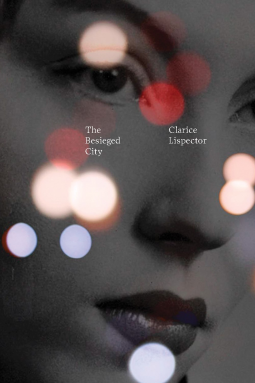
The Besieged City
by Clarice Lispector
This title was previously available on NetGalley and is now archived.
Send NetGalley books directly to your Kindle or Kindle app
1
To read on a Kindle or Kindle app, please add kindle@netgalley.com as an approved email address to receive files in your Amazon account. Click here for step-by-step instructions.
2
Also find your Kindle email address within your Amazon account, and enter it here.
Pub Date Apr 30 2019 | Archive Date Mar 31 2019
Talking about this book? Use #TheBesiegedCity #NetGalley. More hashtag tips!
Description
At last in English, and sure to be a revelation to her admirers, Clarice Lispector’s third book is unlike any of her other novels—it even has a happy ending
The Besieged City’s Lucrécia is unlike any of her heroines—mute and unreflective, she may have no inner life. And its plot resembles no other Lispector narrative: small town gal marries rich man, sees the world, and lives happily ever after.
That said, there are miraculous horses, linguistic ecstasy, catty remarks, minor characters’ visions, music from unknown sources. But centrally, there is Lucrécia, the heroine free of the burden of thought, who “leaned over without any individuality, trying merely to look at things directly.” As Lispector’s biographer Benjamin Moser writes in his introduction: “Lucrécia is vain and pretentious, content to remain on the surface. Lucrécia—there it is in her name—is lucre, just another one of the porcelain knickknacks in her mother’s sitting room: ‘Behold, behold, all of her, terribly physical, one of the objects.’ Her ambitions are material, and she is the most insolently superficial woman Clarice ever portrayed.”
And yet, with this astonishing writer, a fascination with superficiality pulls the reader into very deep waters. As Lispector remarked: “The object—the thing—always fascinated me and in a certain sense destroyed me. In my book The Besieged City I speak indirectly about the mystery of the thing. The thing is a specialized and immobilized animal.”
About the Author: Clarice Lispector (1920-1977), the greatest Brazilian writer of the twentieth century, has been called "astounding" (Rachel Kushner), "a penetrating genius" (Donna Seaman, Booklist), and "a truly remarkable writer" (Jonathan Franzen). "Her images dazzle even when her meaning is most obscure," noted the Times Literary Supplement, "and when she is writing of what she despises, she is lucidity itself."
Benjamin Moser is the author of Why This World: A Biography of Clarice Lispector, which was a finalist for the National Book Critics' Circle Award, and is also the editor of the New Directions Lispector program. A former books columnist at Harper's Magazine, Moser is now a columnist at The New York Times Book Review, and is currently at work on the authorized biography of Susan Sontag. He lives in the Netherlands. The son of Brazilian immigrants.
Johnny Lorenz teaches at Montclair State University and received a Fulbright for his work in Brazilian literature. He has also translated Clarice Lispector's A Breath of Life for New Directions.
Available Editions
| EDITION | Other Format |
| ISBN | 9780811226714 |
| PRICE | $23.95 (USD) |
| PAGES | 208 |



